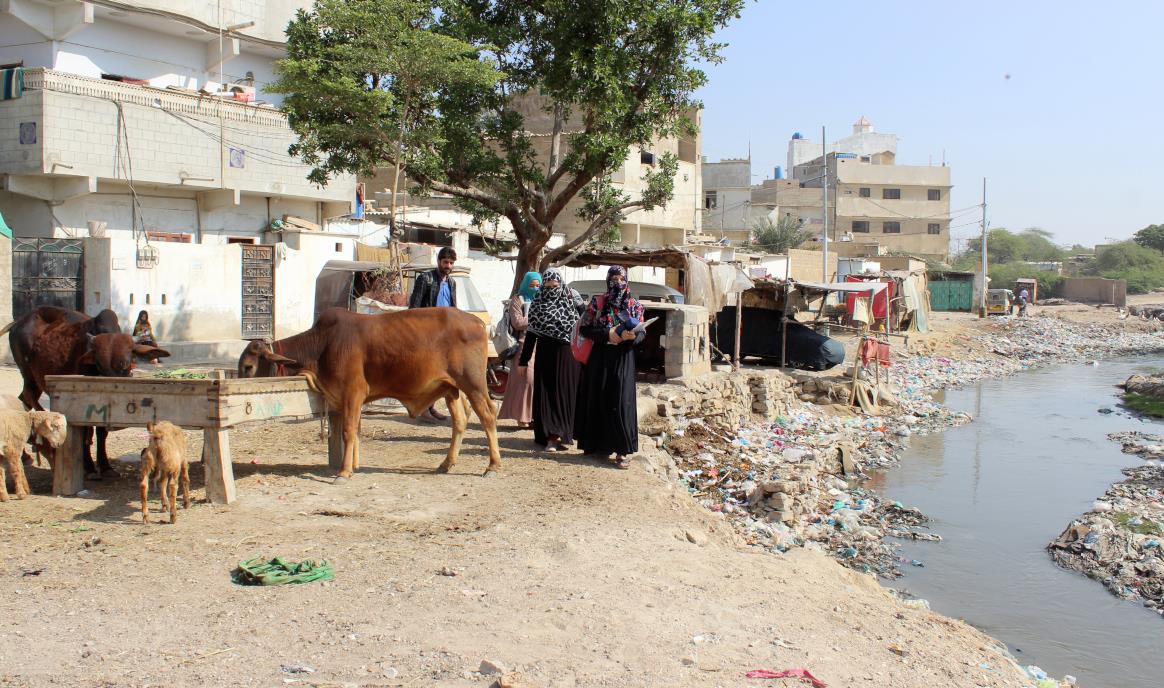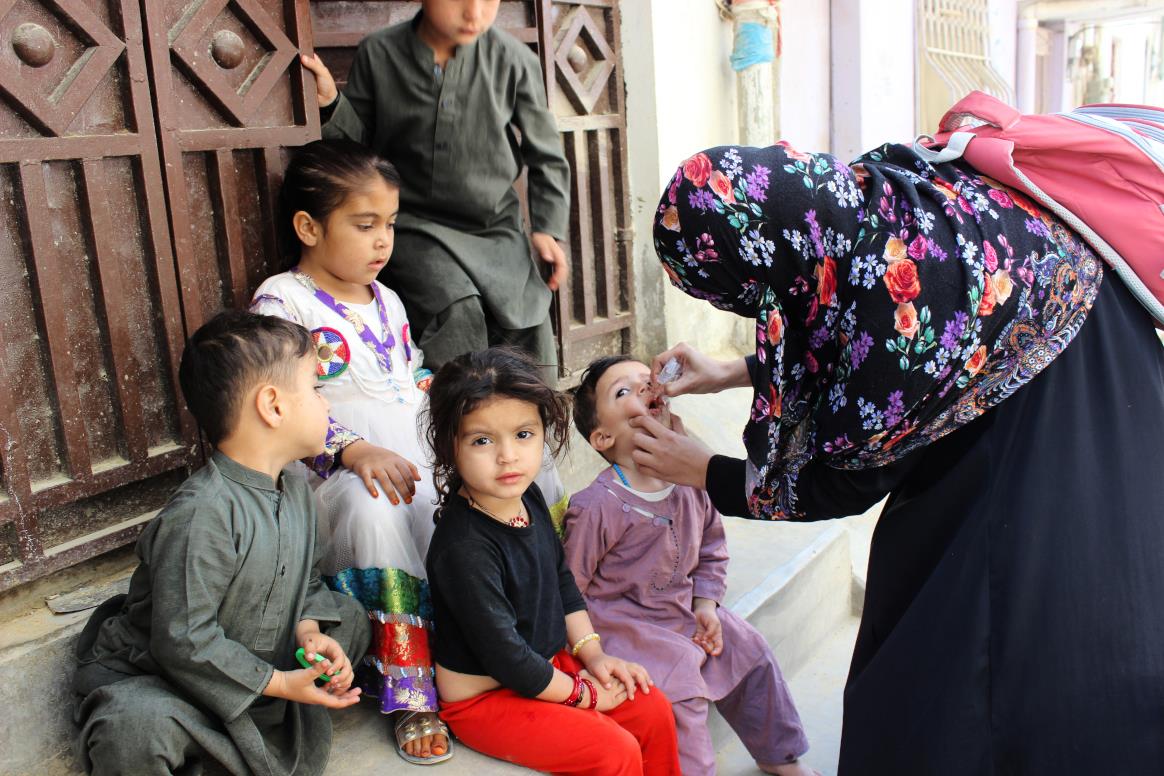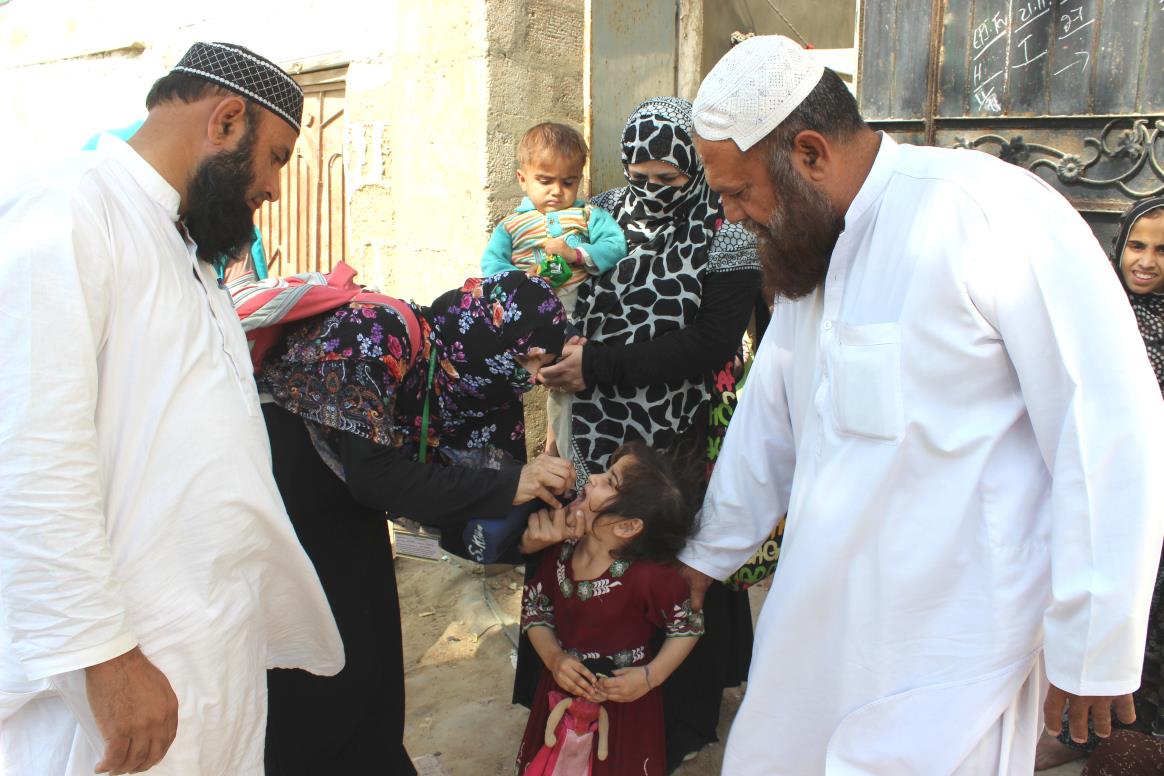 Locally recruited health workers in Pakistan lead efforts to engage with families.
Locally recruited health workers in Pakistan lead efforts to engage with families.Welcome to Pehlwan Goth, Pakistan. A low-income neighborhood on the edge of Karachi city, it is home to many families from Khyber Pakhtunkhwa province who have moved here for work.
An open sewage drain lined with litter runs the length of the settlement. Cattle are often seen grazing near the heaps of garbage. It is a high-risk area for polio, and virus is regularly detected in the environment.
Samreen, a 25-year-old Polio Area Supervisor, leads a team of four community health workers in the area.
“I started working with the Polio Eradication Program four years ago and I am happy to say that we have made a lot of progress here. This is my neighborhood; this is where I grew up and this helps me immensely. People here listen to me, especially the women, and I know most of the children by name,” says Samreen.
Converting refusals
There are around 32,000 children under five years of age in Pehlwan Goth. In April 2019, parents of around 3,000 children refused the polio vaccine. Through the hard work of supervisors like Samreen however, now over 80% of these children have received vaccines.
“I am in charge of an area that has 210 households with 196 children. In 2019, families of more than 50 children refused vaccines. That’s almost one fourth of all the children in my area,” said Samreen.
“Building trust takes time, and we continued engaging with community members, visiting families, listening to their concerns, and explaining the benefits of  vaccination. Today, we have only eight refusal cases out of the previous 50. I will try my level best to bring this number down to zero during the polio campaign next month.”
vaccination. Today, we have only eight refusal cases out of the previous 50. I will try my level best to bring this number down to zero during the polio campaign next month.”
 vaccination. Today, we have only eight refusal cases out of the previous 50. I will try my level best to bring this number down to zero during the polio campaign next month.”
vaccination. Today, we have only eight refusal cases out of the previous 50. I will try my level best to bring this number down to zero during the polio campaign next month.”“But for me, it is not just about just converting refusals during every campaign, I want all families to understand the benefits of vaccines in the long run and ensure the immunization of their children against polio and other diseases.”
Her rapport with families is apparent during house visits. A family with three children, who had refused vaccination in previous months, agreed that their children could this time receive the life-saving polio drops.
Confronting misconception
Building trust with the community has not been an easy task. Samreen is supported by a social mobilizer as well as a local religious support person. The team members work together to address misconceptions and raise awareness of good health practices among caregivers in Pehlwan Goth.
“We speak the same language and our homes are in the same area where we work. It is easier to communicate with people when you are part of the same community,” said Maulana Mohammad Hanif, the religious support person in Samreen’s team.
Sometimes, however, it can take only one negative social media video or news item to reignite refusals and overturn all their efforts.

“The process takes time. The work is tough but I am grateful to Allah for this job, which allows me to feed my family, and contribute to a noble cause, which will save future generations of Pakistanis,” added Maulana Mohammad Hanif.
It’s clear that Samreen and her team will do whatever it takes to deliver a polio-free future to all 196 children in their care. Pakistan and Afghanistan are the final two polio endemic countries in the world and there are still many challenges that remain.
It is the local efforts of teams like Samreen’s that will make all the difference – by listening to communities, building trust and ensuringrapport, they are playing a crucial role to bring their country closer to ending polio.